Well Butter my Backside and Call Me A Biscuit!
 Please welcome my guest writer, Tammy Whitehurst. I met Tammy at the Kentucky Christian Writers Conference. Fast-paced. Funny. Down to earth. Relatable. Tammy is a “hoot with a capital H!” From hilariously funny to seriously faith-filled, Tammy has been featured in Lifeway magazines, Christianity Today and other publications. She has spoken for Moody and Salem Radio Broadcasting. However, to those who know her best, she is simply Davis’s wife, an empty nest mom, and a former middle school teacher. She struggles like the rest of us with dust, dishes, cellulite, junk drawers, and wrinkles. Find out more at TammyWhitehurst.com.
Please welcome my guest writer, Tammy Whitehurst. I met Tammy at the Kentucky Christian Writers Conference. Fast-paced. Funny. Down to earth. Relatable. Tammy is a “hoot with a capital H!” From hilariously funny to seriously faith-filled, Tammy has been featured in Lifeway magazines, Christianity Today and other publications. She has spoken for Moody and Salem Radio Broadcasting. However, to those who know her best, she is simply Davis’s wife, an empty nest mom, and a former middle school teacher. She struggles like the rest of us with dust, dishes, cellulite, junk drawers, and wrinkles. Find out more at TammyWhitehurst.com.
Well butter my backside and call me a biscuit!
If we need a positive expression when good news takes us by surprise, this one takes the cake.
Oh, the joy of being surprised unexpectedly!
 Perhaps the door swings open and someone we love dearly stands there.
Perhaps the door swings open and someone we love dearly stands there.- Maybe an answered prayer that seemed impossible.
- When someone pays for our meal out of the blue.
- Or a text from someone we haven’t heard from in years.
In the South a grin would emerge that would be almost impossible to wipe away and we would say, “Well butter my backside and call me a biscuit!”
Whether we are southern as “all git out” or “suddenly southern” due to a move or vacation, one thing is for sure…. learning southern slang is crucial.
When the trials and tribulations of life have us up against the Red Sea….
God parted it for Moses so the Israelites could pass through (Exodus 14). He can part it for us as well. God can and does exceed our expectations.
Expect the unexpected.
Ephesians 3:20 (NIV) says, “Now to Him who is able to do exceedingly abundantly above all that we ask or think, according to the power that works in us.”
Thanks to Jeri Stone for the biscuits photo.
Do you have an expression you want explained or thoughts about this one? If so, please comment below.
Subscribe to receive my weekly posts by email and receive a free copy of “Words of Hope for Days that Hurt.”
If you enjoyed this post, please share it with your friends.
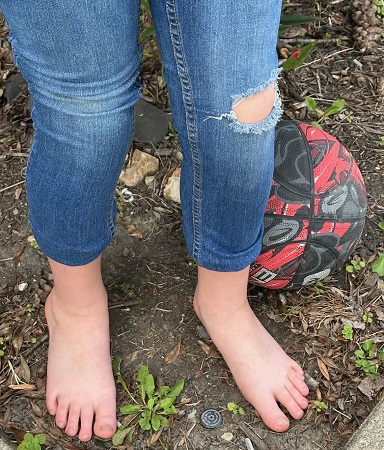
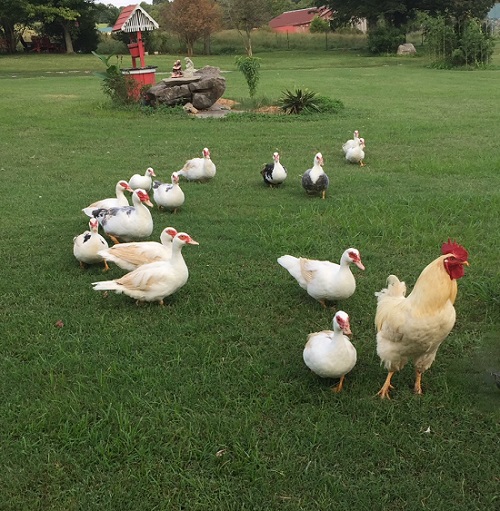



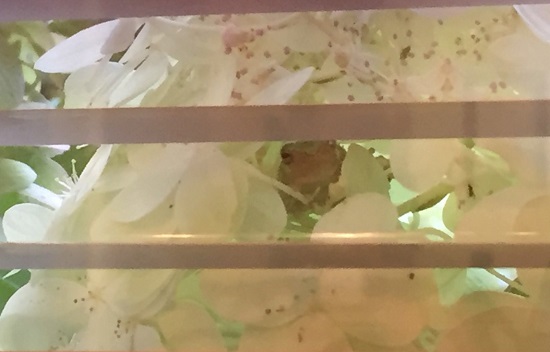
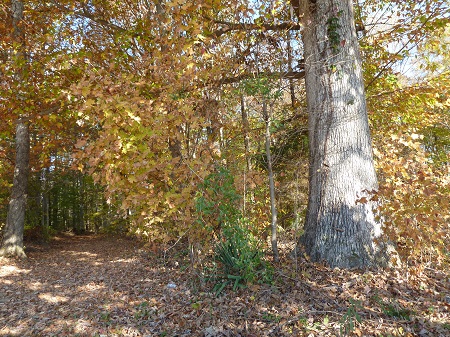 Many of us grew up in the sticks. We had to travel several miles to the closest town. Our travel time increased to reach a city. Some of us remain in the sticks or visit often.
Many of us grew up in the sticks. We had to travel several miles to the closest town. Our travel time increased to reach a city. Some of us remain in the sticks or visit often. “Do you prefer ice cream, cake, or both?” “I’m leaving now. Is that okay?” “Mind if I change the station on TV?” For all these questions, we might answer, “It don’t make me no never mind.” Of course, we don’t give that answer if we prefer correct grammar.
“Do you prefer ice cream, cake, or both?” “I’m leaving now. Is that okay?” “Mind if I change the station on TV?” For all these questions, we might answer, “It don’t make me no never mind.” Of course, we don’t give that answer if we prefer correct grammar. Lambs are small and have short tails. I don’t know if that has anything to do with the origin of two shakes of a lamb’s tail. However, it makes sense to me.
Lambs are small and have short tails. I don’t know if that has anything to do with the origin of two shakes of a lamb’s tail. However, it makes sense to me. More than one way to skin a cat sounds cruel. We don’t want our cute, fur-covered pets to suffer.
More than one way to skin a cat sounds cruel. We don’t want our cute, fur-covered pets to suffer.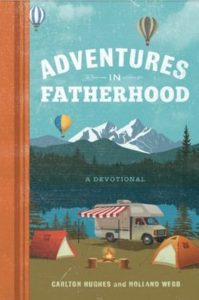 Congratulations to Stephen Russell, whose name was drawn from my mailing list for a free copy of Adventures in Fatherhood by Carlton Hughes and Holland Webb.
Congratulations to Stephen Russell, whose name was drawn from my mailing list for a free copy of Adventures in Fatherhood by Carlton Hughes and Holland Webb.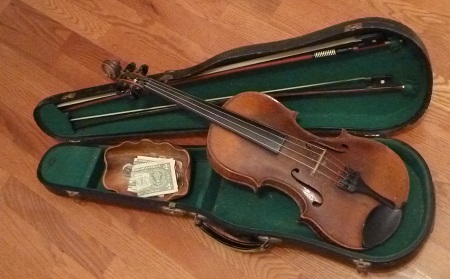 A friend’s father often said, “The one who dances has to pay the fiddler.” That makes sense. We live with the consequences of the choices we make.
A friend’s father often said, “The one who dances has to pay the fiddler.” That makes sense. We live with the consequences of the choices we make.